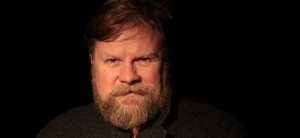Der blinde Fleck
In the organizer's words:
80 years after the end of the Second World War, trauma and stress expert Louis Lewitan, son of Shoah survivors, and journalist Stephan Lebert open the poison cabinet of German memory: in their book "Der blinde Fleck. Die vererbten Traumata des Krieges - und warum das Schweigen in den Familien jetzt aufbricht" (Heyne), they ask those born later what they know from their families about the years 1933 to 1945. On stage at Munich's Volkstheater, Louis Lewitan and Stephan Lebert talk to presenter Amelie Fried, cabaret artist, author and musician Andreas Rebers and Louis Lewitan's daughter Joëlle about the difficult yet liberating confrontation with the burden of one's own family history and the importance of a culture of remembrance today.The Shoah and the end of the Second World War were a long time ago, and only a few contemporary witnesses are still alive. However, their past still leaves its mark on families today. Shaped by a catastrophe that they did not experience themselves, many descendants in the land of perpetrators and accomplices bear psychological scars, the causes of which they often only vaguely know. In many families, leaden silence, repressed memories, well-kept secrets and persistent lies are omnipresent - an oppressive legacy whose poison still has an effect today. But the armor of silence breaks open: As they no longer have to fear confrontation with their grandparents or parents, more and more people are researching their family history and tracing how it has influenced their own lives. Based on around one hundred interviews with those affected, including Andreas Rebers, Louis Lewitan and Stephan Lebert write about the "blind spots" and the opportunities that lie in coming to terms with one's own family history. A topical contribution to the German culture of remembrance.
Moderation: Amelie FriedMusic: Andreas Rebers
In cooperation with the Cultural Center of the Jewish Community Munich & Obb. and Heyne Verlag
This content has been machine translated.













